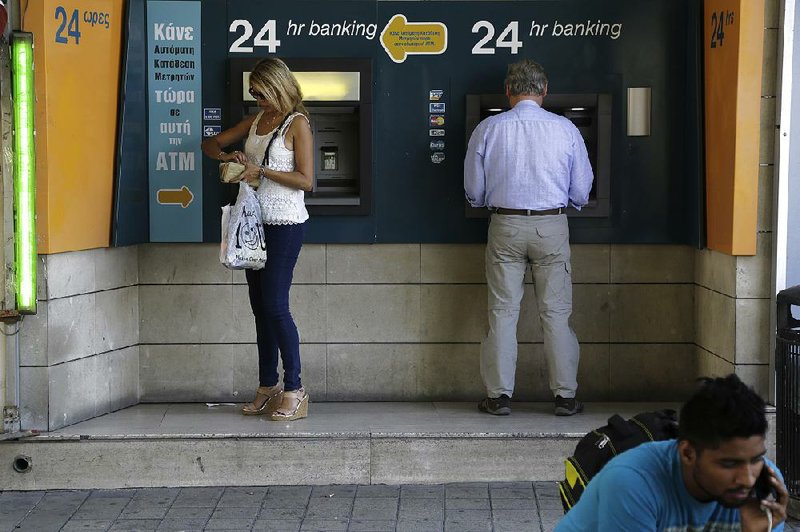NICOSIA, Cyprus -- After emerging from a three-year, multibillion-dollar rescue program, Cyprus boasts one of the highest economic growth rates among the 19 eurozone countries -- an annual rate of 2.7 percent in the first quarter.
Finance Minister Harris Georgiades said Cyprus turned its economy around after its worst economic crisis in decades by aggressively cutting costs but also by avoiding piling on new taxes that would weigh citizens down and put a serious damper on growth.
"We didn't raise taxes that would burden an already strained economy," he said in an interview. "We found spending cuts that weren't detrimental to economic activity."
Cyprus was on the brink of bankruptcy in March 2013 after a banking crisis overwhelmed state coffers, which were already strained by years of budget deficits and government overspending on the public sector.
Cyprus' $11.2 billion rescue deal from its European Union partners and the International Monetary Fund came with the kinds of strings that sent shock waves across the 28-member bloc and beyond. Unsecured deposits in the country's largest lender were seized to buttress a teetering banking sector. The second-largest lender was forced to shut its doors, with accounts protected only up to 100,000 euros.
To prevent a run on banks, Cypriot authorities immediately imposed controls on money transfers that were only fully lifted a couple of years later, after the banking sector was thoroughly restructured.
"This has enabled the banking sector to heal to a large extent, to regain the trust and confidence of depositors and investors," Georgiades said.
That's not to say that all is well. Nearly half of all loans in Cyprus are still classified as soured, and authorities are struggling with unemployment of about 12 percent. That's down from its peak of about 16 percent a year ago, but it's a long way from the 4 percent it enjoyed a few years ago.
"Exiting the crisis program, this second chance which we have essentially gained does not signal a termination of the efforts," Georgiades said. "On the contrary, we shall maintain and enhance the reform momentum and strictly maintain fiscal discipline."
Critics have accused the government of working its fiscal gymnastics on the backs of the poor -- essentially chopping salaries for public-sector workers.
Pambis Kyritsis, head of aleftist trade union, said the government's "neo-liberal" policies coupled with the creditors' harsh terms have widened the chasm between the haves and have-nots.
"What we see now is this bill is being paid by the workers and the poor people," Kyritsis said in an interview. "[Under] this philosophy, it's reasonable for workers to lose their income and their rights, but profits should stay stable or [get] better."
Georgiades said there shouldn't be any letup in the government's overhaul program and fiscal discipline.
"We have been in a recession since 2009, and a year of growth is not enough to do away with all the consequences that a long, protracted crisis has left behind," he said.
Less than two years ago, in the middle of the economic crisis, a charity shop run by the Orthodox Church in the heart of Nicosia was awash with jobless people looking for free food.
Now, demand has dropped off to the point that church authorities are considering shutting it down. At last check, about 120 families were using the shop, a far cry from 2,500 in July 2014, said the shop's manager, Panayiotis Panayiotou.
"The shop has run its course," he said. "The need for it is no longer that great."
A Section on 05/22/2016

